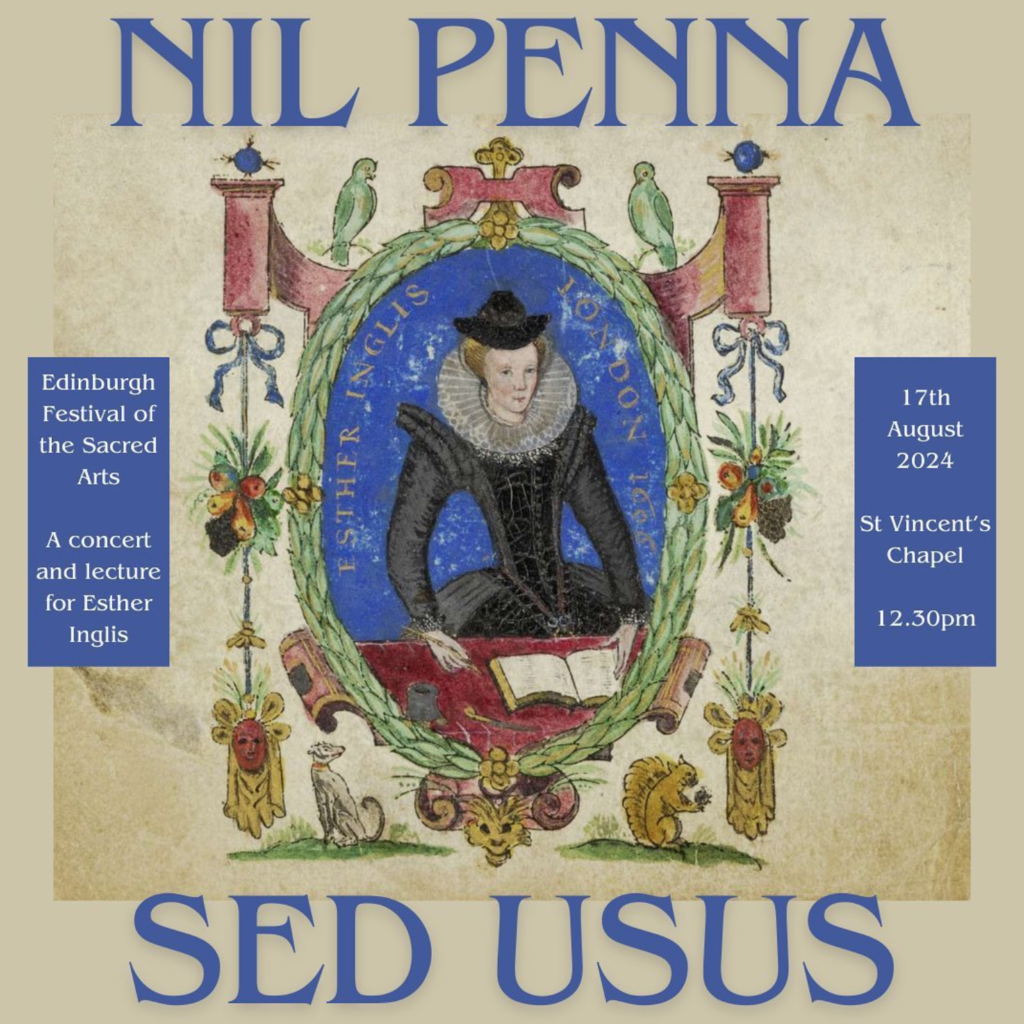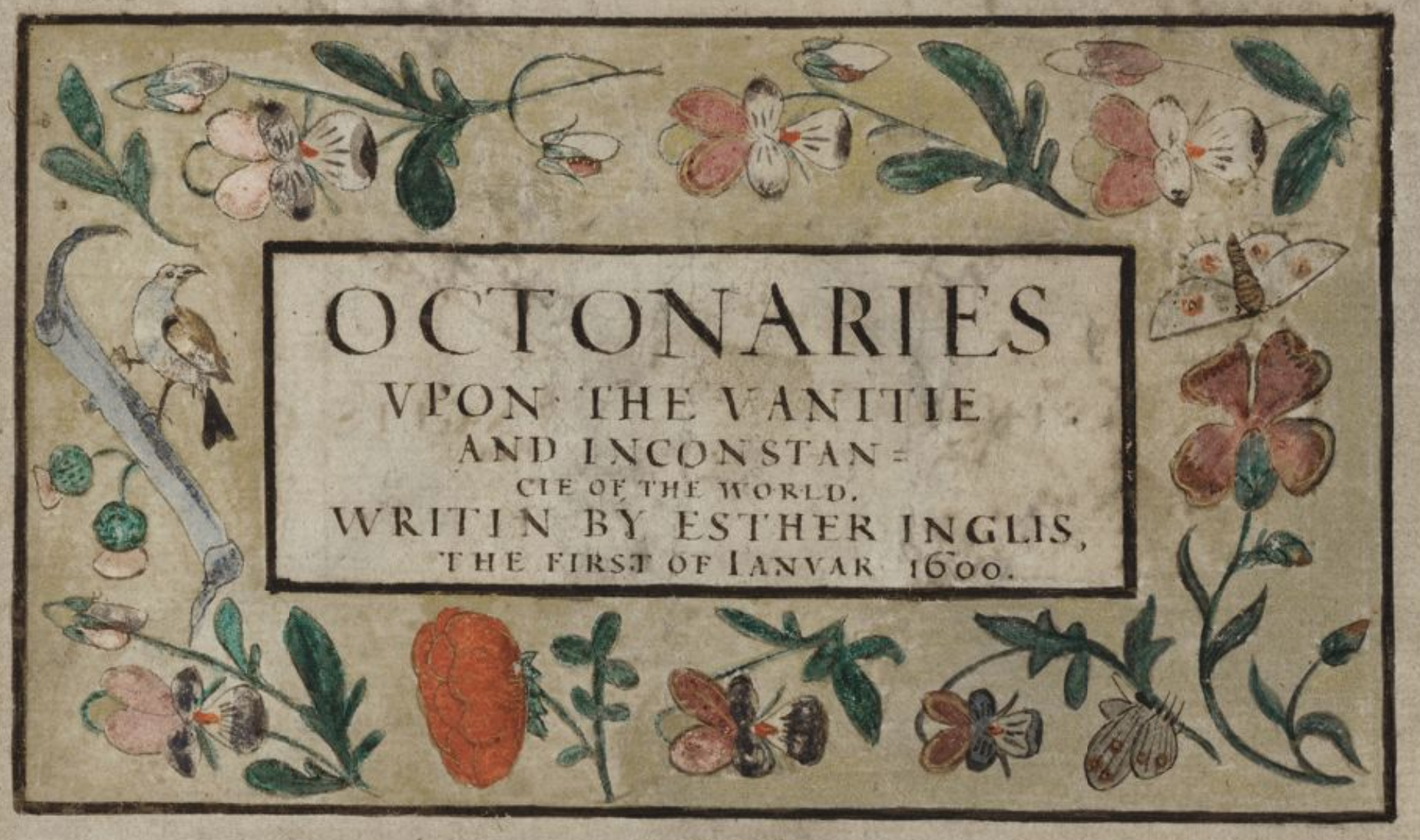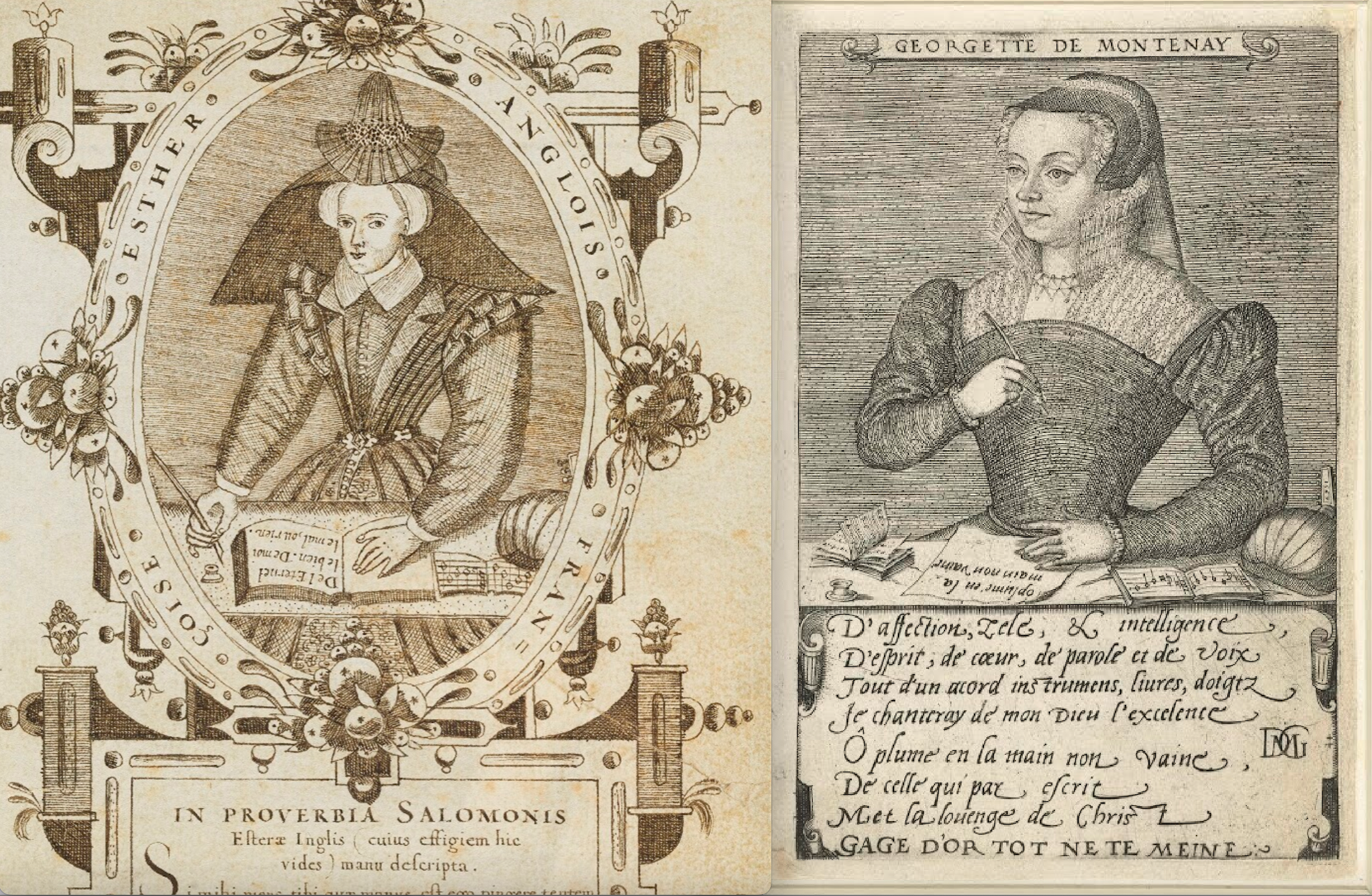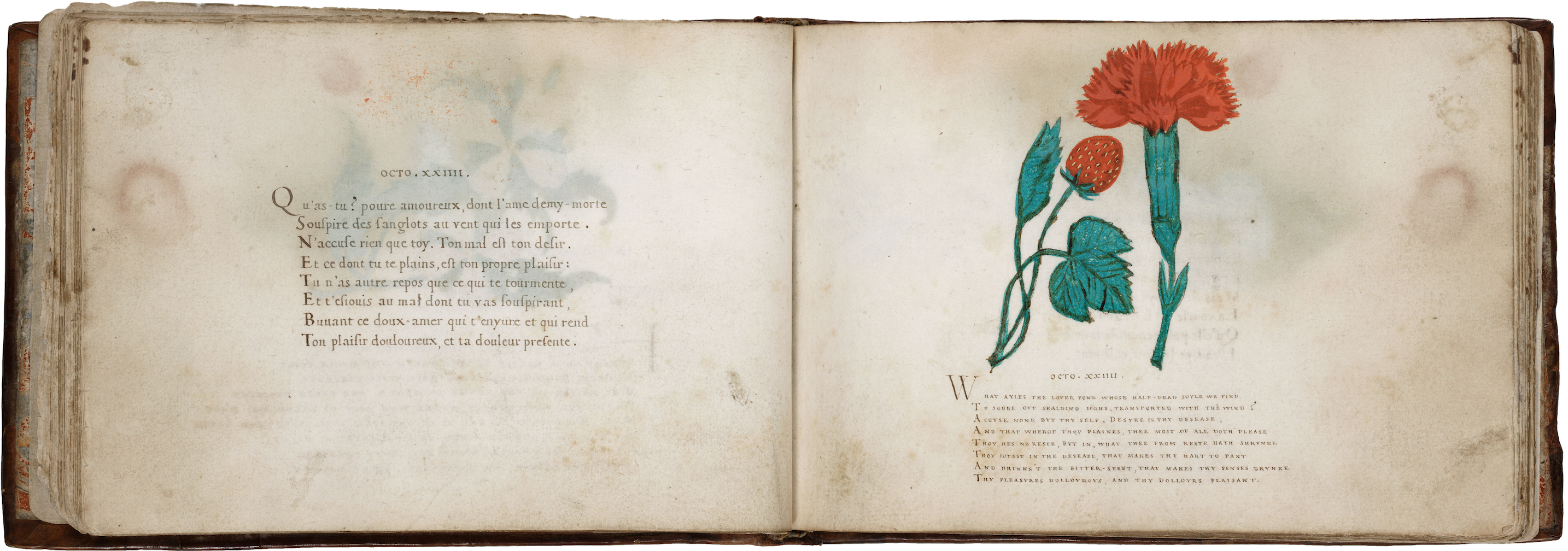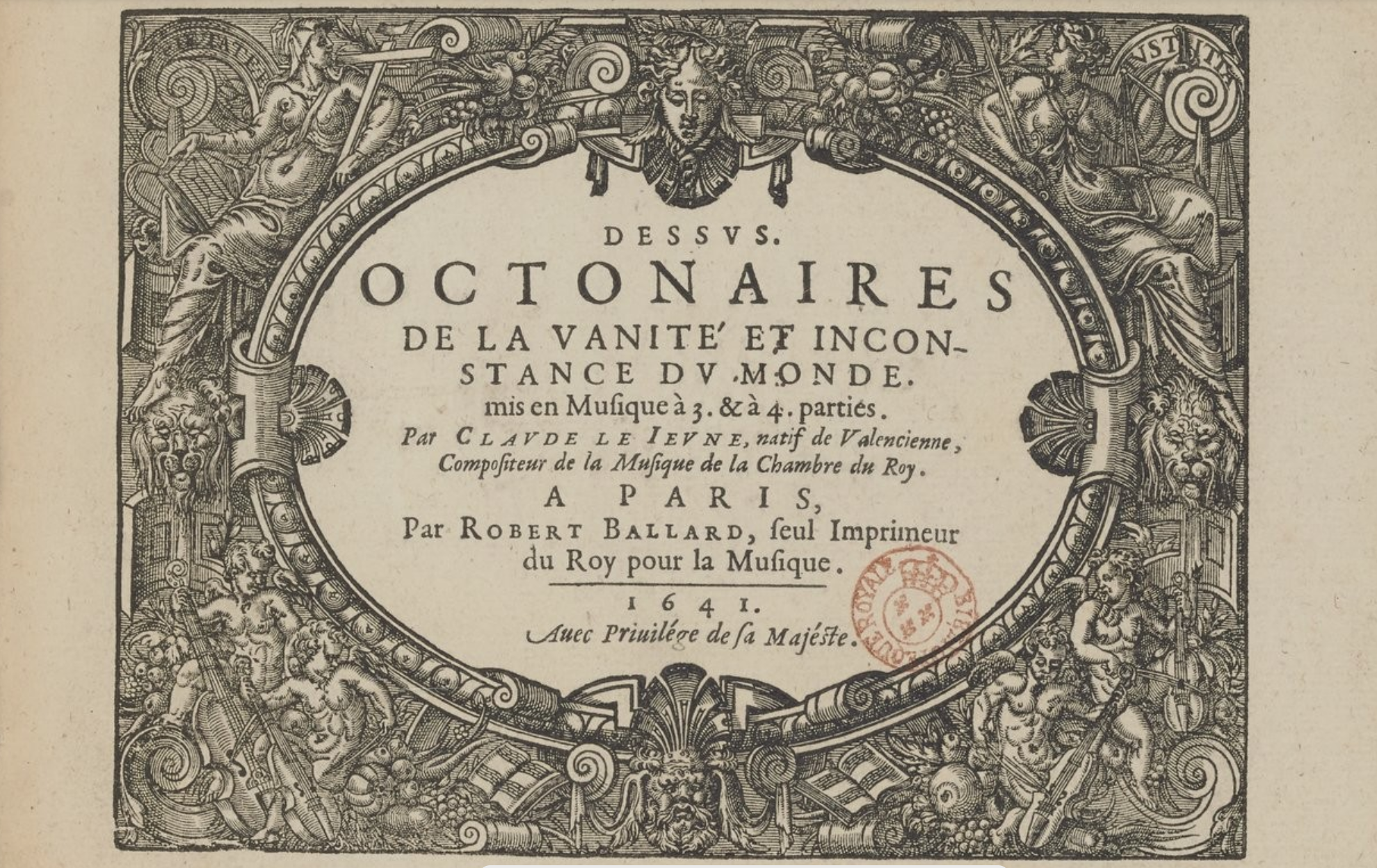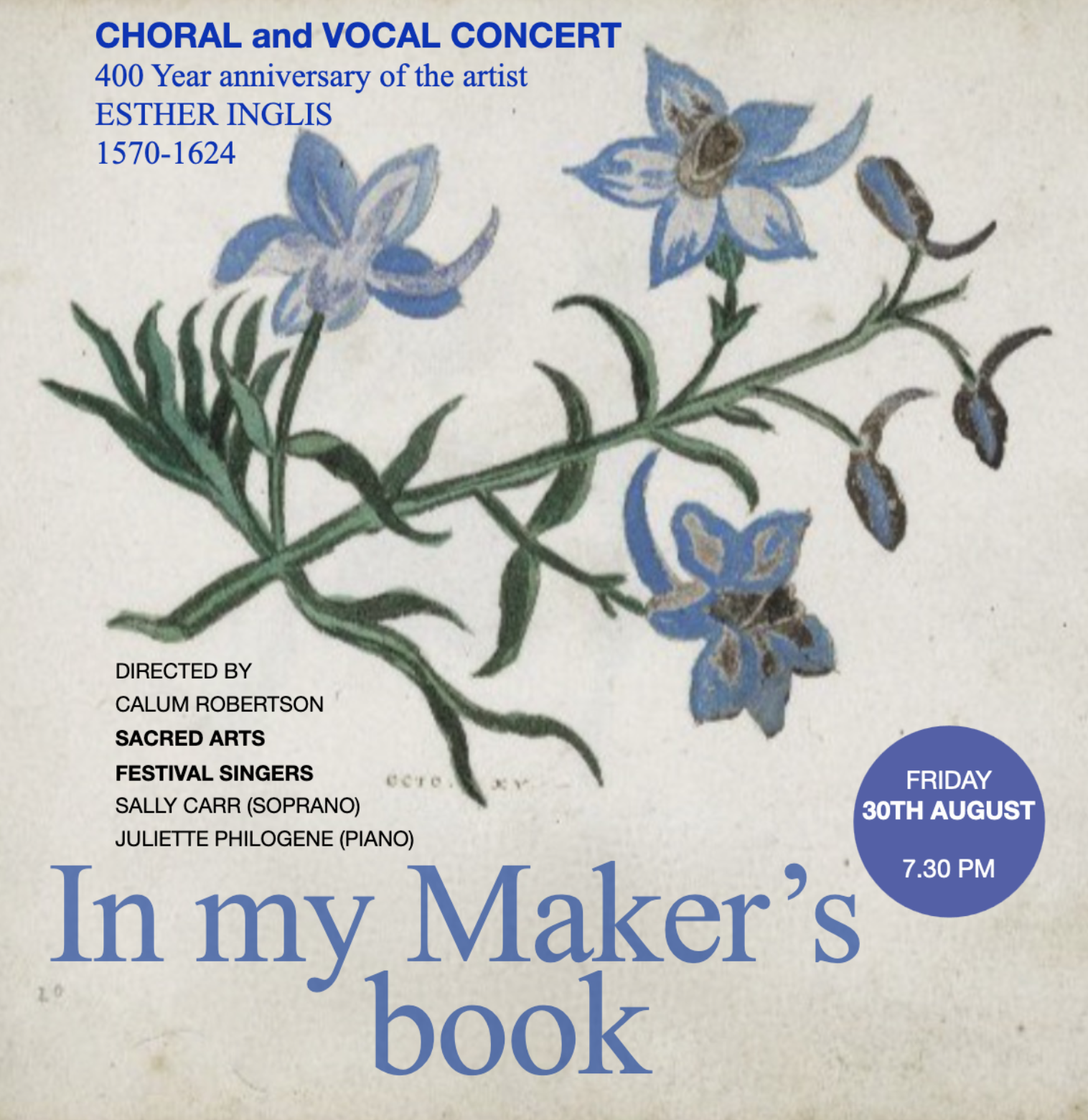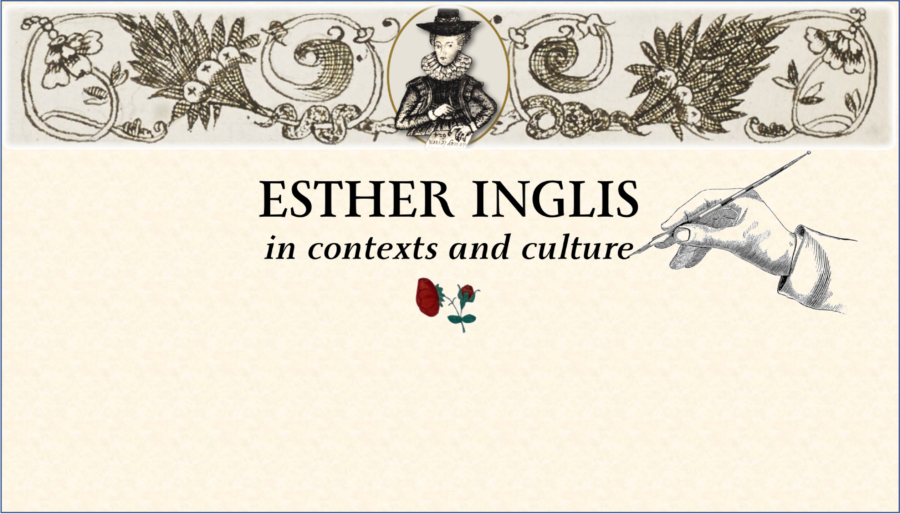This post was written by Jaycee Streeter, Outreach and Communications Intern for the Esther Inglis Project. Jaycee is a History MSc student at the University, with research interests in early modern Scottish literary and religious history.

On Saturday, April 26th, St. Cecilia’s Hall in Edinburgh hosted “An Afternoon with Esther Inglis (c. 1570-1624)”, marking the end of the Esther Inglis 2024 Project, coordinated by Anna-Nadine Pike and Jaycee Streeter. The project has been running at Edinburgh University Library for the last eighteen months, marking 400 years since Esther Inglis death through new research, an online exhibition titled “Rewriting the Script”, and a program designed to bring Esther Inglis story to wider audiences in Edinburgh and beyond. That program included concerts, an international colloquium, a physical exhibition in the Centre for Research Collections, and now, a grand finale with this final public event.
The event aimed to bring Inglis, with her work and context, to the public through a variety of forms—a panel discussion, poetry performance, and musical performance—and a mix of media both contemporary to Inglis and modern but inspired by her.
The panel featured two Esther Inglis experts, Anna-Nadine Pike and Jamie Reid-Baxter, as well as two acclaimed authors who have featured Inglis in their works, Sara Sheridan and Gerda Stevenson. Their discussion was extensive and varied, touching on Inglis’ context in Edinburgh, how we can better tell the stories of Scottish women in this period, their research processes and how they manage/utilize silence in the archives, and the role we can play in commemorating women today. The audience was able to ask questions of the panel, and were curious to know more about Esther Inglis and her story.
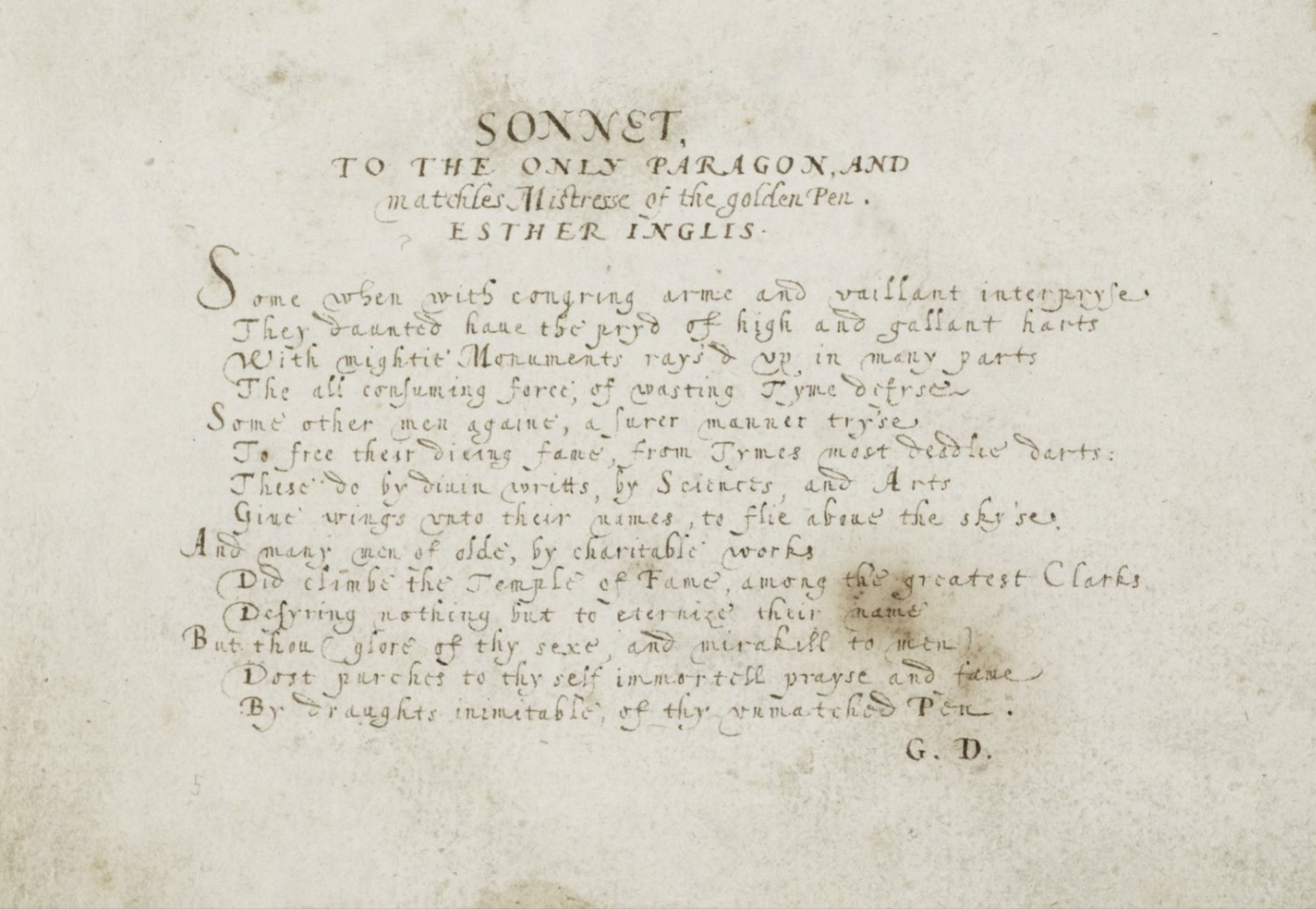
Then, Gerda Stevenson and Jamie Reid-Baxter brought poetry to life with readings from Inglis’ manuscripts, words written by Inglis herself, and contemporary poetry written praising Inglis and her skills. Reciting in French, English, and Scots, their performance brought the audience closer to Inglis’ life and work.
This was followed by a modern composition, Gerda Stevenson’s own “Nine Haiku for Esther Inglis” which is featured in her poetry collection, “QUINES: Poems in tribute to women of Scotland.” She discussed her inspiration for the poem and the emotional connection she felt with Inglis, and the other women featured in the collection.
Then, the White Rose Ensemble took the stage. The Ensemble, founded in 2017 by soprano Sally Carr and clarinetist Calum Robertson, is an Edinburgh-based duo known for their innovative chamber music rooted in Scottish and contemporary traditions. They were joined by pianist Ailsa Aitkenhead. Together, they played psalms featured in Inglis’ manuscripts and two songs written by contemporary Scottish women, showing the audience the music that Inglis would have engaged with in her lifetime.

The event concluded with a modern composition by Sheena Phillips, set to the text of Gerda Stevenson’s “Nine Haiku for Esther Inglis,” which Phillips describes as, “marvellous vignettes of key aspects of Esther’s life and work, and full of musical possibilities. The musical setting of the haiku deliberately echoes aspects of Esther’s work.”
This blending of Inglis’ work and work contemporary to her and modern art inspired by it embodies the goal of this event, and in a greater sense, the whole Esther Inglis Project. If the panel posed the question, “How can we commemorate women like Esther Inglis today,” then the rest of the program gave a resounding answer: Celebrate them, remember them and speak about them, and continue to let their stories inspire future generations through art and memory.
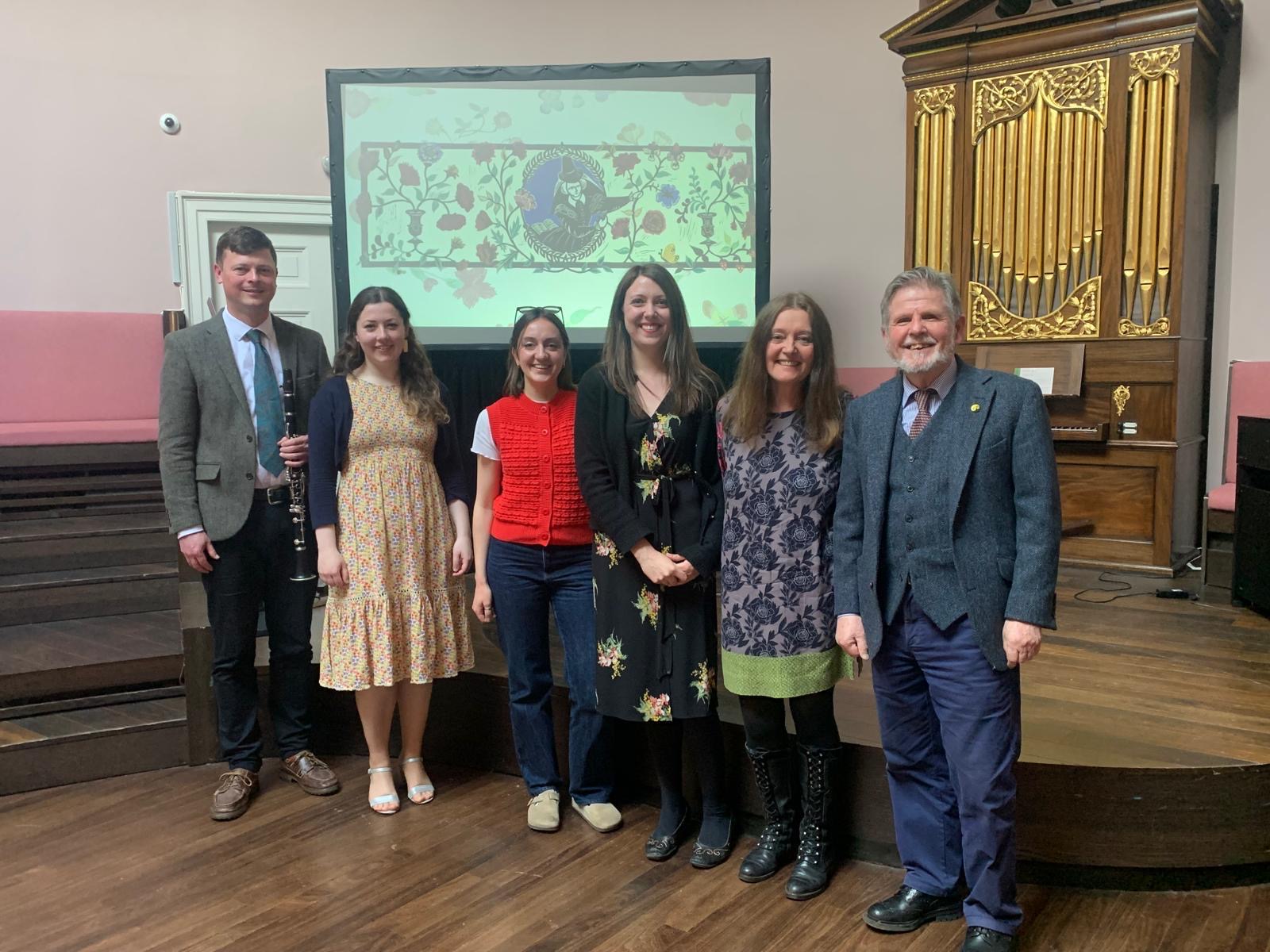
…
On a personal note, being the Outreach and Communications Intern for this Project has been not only an honor, but a joy. Through the events hosted this spring, I got to know a community passionate about learning and celebrating early modern Scottish women. I learned valuable lessons about engaging with the public in matters of history (and broadened by perspective on what “the public” even means), and to not underestimate the amount of interest that exists in even niche historical people and events. I am immensely grateful for my time with the project.

